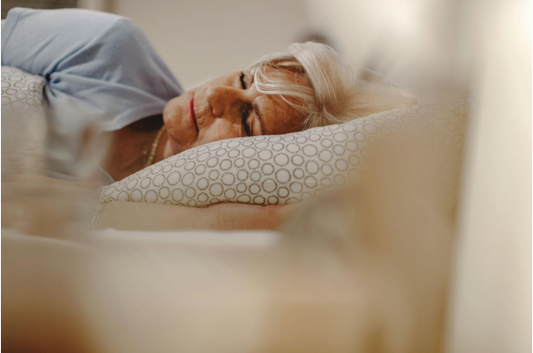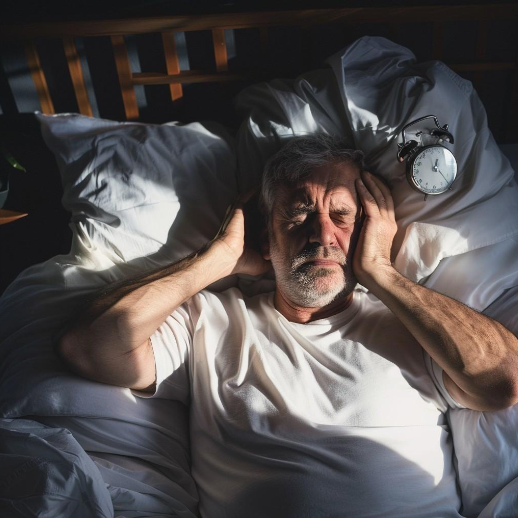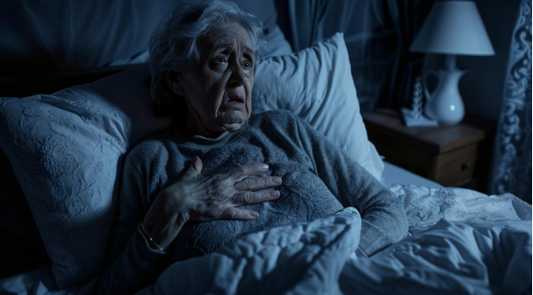Sleep and mental health go hand-in-hand. The better your mental health is, the more likely you will be able to get better sleep.
The direct connection between the two means that people look for tips for improving their mental health so that they can improve their quality of life, as well as their sleep.
Continue reading for more on how mental health and sleep are connected, coping mechanisms, and how to improve your mental health and sleep.
How is mental health-related to sleep?
Poor mental health can contribute to sleep disorders, such as insomnia and sleep paralysis. Stress, anxiety, and depression can all contribute to how easy we find it to get to sleep as well as stay asleep.
Therefore, the less stressed and anxious we feel, the easier we might find it to get to sleep. However, this is just a small comparison. There are other mental health issues that are connected to sleep.
Hence, it is important to understand how the following mental health issues are related to sleep:
How is stress related to sleep?
Daily hassles can soon turn into major stress.
Whether you are stressed about something small or you have had a largely stressful day, then you will likely feel angry, frustrated, or irritable. All of these emotions can make it difficult to get to sleep.
How is depression related to sleep?
Lack of sleep and insomnia is often associated with being a symptom of depression. In recent studies, some people suggest that a lack of sleep can cause depression. Hence, it can be a vicious cycle for your mental health.
Treating insomnia or a lack of sleep can often contribute to better mental health. In a study that involved 3,700 participants that had difficulty sleeping, it found that those who received cognitive behavioral therapy (CBT) saw a reduction in depression and achieved improved sleep.
How is anxiety related to sleep?
Similar to depression, anxiety can also be a vicious cycle when it comes to sleep. A lack of sleep may cause symptoms of anxiety. Also, anxiety can contribute to a lack of sleep.
Coping with anxiety can be much more difficult if you have a lack of sleep as not enough sleep can cause low energy, a low mood, and more.
How is bipolar disorder related to sleep?
Poor sleep and sleep disorders are quite common among patients that suffer from bipolar disorder.
Due to bipolar disorder involving lows and highs in moods, patients may have frequent poor sleep. Some nights might be fine while others might not. It is important to get your condition and sleep issues seen to be a doctor to attain the best treatment.
How is ADHD related to sleep?
ADHD (attention-deficit hyperactivity disorder) and sleep are linked due to sleep disturbances being a common issue that ADHD patients deal with.
ADHD patients might also suffer from lack of sleep due to not being able to fall asleep, sleep breathing issues, difficulty waking up in the morning, and sleepiness.
Ways to improve mental health and sleep
Knowing that there is a direct link between mental health and sleep might make you more aware of why you are dealing with poor mental health and/or a lack of sleep. Seeing as various conditions and mental health issues can contribute to poor sleep, it can worsen mental health. It can be a vicious cycle. However, there are options to try in order to improve your mental health and sleep.
There is no quick-fix or definitive solution, yet here are some to try to improve your issues:
Sleep treatments
There are plenty of sleep treatments available, which can with your sleep. In turn, improved sleep may contribute to improved mental health. Some sleep treatments to consider include:
- Continuous Positive Airway Pressure (CPAP) - this treatment uses an air machine that pushes a constant level of air through a tube so that you can breathe efficiently throughout your sleep.
- Natural remedies - natural remedies might be recommended by a doctor. This could include herbal teas, supplements, oils, music, and more. These treatments can aid better sleep by helping you relax. More sleep will contribute to overall happiness, which can help manage mental health.
Cognitive-behavioral therapy (CBT)
CBT is useful to help with both sleep and mental health issues as a therapist will help assess your thought patterns. As a result, they will provide solutions to reformulate your thoughts and think more positively, which can reduce stress and anxiety. CBT can also be used to treat sleeping problems, like insomnia, to offer coping mechanisms and strategies that can help a person get to sleep and stay asleep.
Improve sleep hygiene
Sleep hygiene involves your bedtime routine. A bedtime routine is useful to help your mind and body relax, which in turn can help you drift off into a peaceful and lengthy sleep. The best way to have good sleep hygiene is to set bedtimes and wake-up times, use relaxation techniques before bedtime (meditation, journaling, etc.), avoid alcohol/caffeine in the evening, maximize comfort, and block light. Small changes to your sleep routine can make a huge difference to your sleep, your wake-up cycle, and how long you sleep.
To Summarize
Seeing as there is a direct link between mental health and sleep, it can be useful to try these sleep aids and improve tips to help achieve better sleep. With better sleep, you can focus, attain happiness, and feel less stressed.
Should your mental health not be improved with better sleep, then it is advised to chat through further treatments with your doctor. Sometimes poor mental health can hinder your sleep and if the sleep treatments do not work to improve your mental health, other therapies might work. Hence, better mental health may result in your sleeping better.






